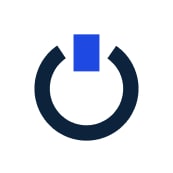Utilities
Despite remaining last in the ranking, the sector is closing the gap that separates it from the rest of the field. This year, it was one of the few sectors that greatly improved its scores with respect to both 2022 and 2021, when the sector made a big leap forward. Utilities is also the only sector that received better scores across all pillars this year, with the strongest improvement in the highly valued personalization and in resolution. It made a smaller but still important progress in empathy, integrity and time and effort. And if the sector can keep this up, we could see it step up a spot within the next two years.
Slow return of trust
The sector is currently finding its footing again, after a slew of crises: the unexpected collapse of Bohemia Energy, the war in Ukraine all but stopping the supply of gas from Russia, and finally, double-digit inflation, with the sector bearing a lion’s share of responsibility for that. However, recent months suggest better times are ahead, with companies taking utility prices below the state-mandate limits and more customers looking to get fixed price tariffs. Suppliers are already accommodating this demand by offering to freeze prices for six months or even a full year, with some smaller companies like TEDOM even offering month-long fixed tariffs – a solution that could be favourable to customers given the current trend of dropping prices.
Customer experience development in the sector shows that customers are slowly but surely starting to rebuild their trust in energy suppliers who are, in turn, reducing prices, offering promotions (like rewards for reducing power consumption) and also accommodating customers in terms of energy savings and environmentally friendly solutions. Retail customers can expect suppliers’ help in implementing modern solutions like heat pumps or solar panels, with many trying to win customers with discounts or free installations. The demand for green energy has also grown compared to previous years, but only time will tell if this limited interest grows into a mainstream trend.
Transparent communication is the way
innogy defended last year’s victory, while E.ON gained on ČEZ and pushed it to third place, taking home the sector’s silver medal and the title of the top climber. All thanks to better scores in personalization and resolution, and in value as well – a metric indicating how happy customers are with what they get for their money. The study results indicate that after a period of turbulence, customers trust brands that communicated openly, provided clear, detailed explanations of the situation and potential future developments, and took a supportive stance.
The sector’s leaders are no different, providing clear information about their prices dropping below the government-mandated limits. E.ON did an especially good job, with transparent information on price developments and a web-based E.ON guide that helps customers navigate and understand all the available options concerning energy savings, green energy, or efficient use of alternative transportation. The website also comes with a handy price calculator. innogy has one too, in its intuitive app called innosvět, which allows clients to easily access and monitor their services, payments, or consumption.
Top three (scale 0–10)
„I live in Pilsen, but I still prefer using E.ON. My two-year fixed tariff contract is actually expiring today, but I intend to stay. E.ON is a strong player in the power sector, and they helped me make it through the height of the electricity crisis, so choosing them was the right decision. All their call centre operators are always nice and forthcoming, and I can also access E.ON online and easily keep an eye on everything.“
Woman, age 73, E.ON
„I love the My ČEZ online profile, and the company’s helpline is also good, with operators who are always nice and helpful. Just today I needed to sort out a change in my contract because my fixed tariff will end in July. The operator helped me arrange a new fixed period of one year, and the amended contract arrived by email as soon as I hung up. All taken care of quickly and to my satisfaction.“
Woman, age 67, ČEZ
„I needed to change my monthly deposit amount, and I was able to do it in the app – it’s great that you can do that online and don’t need to go anywhere in person.“
Man, age 47, innogy
Power, self-reliance, and independence to the people
The sector did not fail to notice that more and more customers want to have their business taken care of quickly and preferably online – because they are used to it now thanks to things like mobile banking apps. Self-meter reading and price calculators have now become a standard in the sector, with even more things that you can now do on your computer or mobile device. And customers do notice, praising these new options in their reviews. With E.ON, you can get an estimate of your total bill by submitting a meter picture. The company tries to motivate customers to use online solutions by offering discounts – like when you sign a contract online. ČEZ is also working hard to keep up, offering similar options to its customers with their Proud app, and it’s also getting positive reviews about the helpline.
Customers are still very much interested in savings options, which often go hand in hand with solutions that increase their self-reliance, and companies are racing to offer the best deals. With innogy, you can get solar panels with guaranteed installation within three months, a discount of 40,000 crowns, and a solar battery for a symbolic price of one crown. ČEZ, on the other hand, can get you a heat pump installed at your house quickly, with a 50,000 discount, and help you apply for a grant, too.
More and more clients also value carbon footprint optimization, which presents another opportunity for the suppliers. With E.ON, you can use their app to easily opt in to receive green power. Power suppliers are also thinking about the future of electric cars, with ČEZ already building one of the most powerful EV charging stations with a combined output of 360 kW near Mladá Boleslav, where it will become a part of the seven-station charging hub. In total, ČEZ operates over 550 EV charge points all over the country, but E.ON and PRE are also busy working in this area.
Smart solutions
Artificial intelligence has the potential to significantly impact customer experience, service quality, and efficiency, but also the quality of customer service in the utility sector with things like dynamic pricing models, personalized offers or optimized power production and distribution systems.
Every customer is different
With technology capable of predicting power consumption, AI allows suppliers to respond to customers’ current needs and offer flexible pricing, or use behaviour patterns to provide them with suggestions on how to use their appliances more efficiently. This way, when a supplier learns that a family charges their electric car every night, they can offer a better nighttime tariff or suggest more suitable charging times that will help the family save money. AI also brings new marketing possibilities, allowing suppliers to reach customers more easily and effectively by predicting their behaviour and needs. Such AI-generated data can then be used to create long-term strategies and offer personalized discounts or special products.
Distribution on track to perfection
The so-called meta forecasts are a revolutionary tool that helps make precise wind predictions for wind power plants, for instance. These forecasts help plan production, predict shortage or surplus of power in the plants, and use this information to maintain a steady supply of power to the network. And with evolving distributed energy resources (DER), AI can analyse both real-time and historical data from different sources, using this information to make millions of lightning-fast decisions on network management, keeping it stable. Artificial intelligence can also predict levels of power demand, helping with more efficient resource planning and allocation, energy distribution, or energy storage.
Both E.ON and PRE believe in the future of AI-optimized services, like an algorithm predicting when the high-voltage cables in the network will need replacement, which is already used abroad. E.ON’s own research shows that this solution can help reduce power outages by as much as 30%.
And as for ČEZ, it’s already using its subsidiary, Inven Capital, to invest into an Israeli startup WINT that uses AI to prevent leaks in water pipes and reduce water waste.
Utilities





